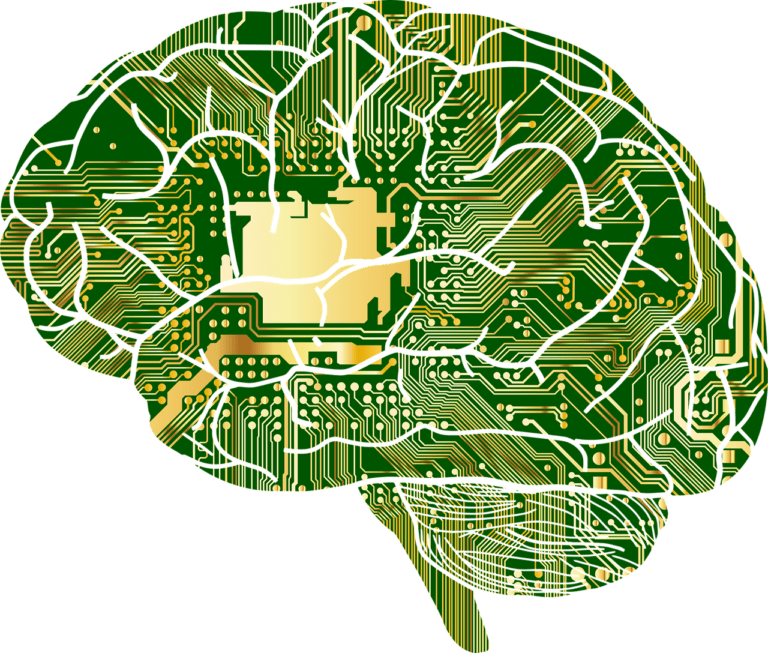The Happiness Trap – Russ Harris
So, you've probably heard the phrase 'just think positive' when faced with a difficult situation. But what if that's not the best advice? Have you ever found yourself feeling like you're constantly chasing after happiness, only to end up feeling more stressed and dissatisfied?
Russ Harris, in his book 'The Happiness Trap', challenges the conventional wisdom of positive thinking and offers an alternative approach to finding contentment and fulfillment in life. But how exactly does he propose to do this? And what makes his perspective on happiness so different from what you've been told before?
Key Takeaways
- Recognize common patterns of thinking that lead to dissatisfaction and distress
- Embrace a realistic perspective on happiness
- Practice mindfulness to navigate life effectively
- Identify core values that matter in life and align actions and decisions with them
Understanding the Happiness Trap
To understand the Happiness Trap, it's important to recognize the common patterns of thinking that can lead to dissatisfaction and distress in your life. Understanding happiness involves acknowledging that constantly striving for a life free of negative thoughts or emotions is unrealistic. People often fall into the trap of believing that happiness means always feeling good, and this can lead to a constant sense of failure and disappointment. However, embracing a realistic perspective allows for a more balanced and fulfilling life.
Mindfulness benefits play a crucial role in understanding the Happiness Trap. By practicing mindfulness, individuals can learn to observe their thoughts and emotions without judgment, creating space to respond more effectively to life's challenges. This approach encourages a values-based living, where actions are guided by personal values rather than the pursuit of constant happiness.
The Myth of Positive Thinking
You may have been taught that positive thinking is the key to happiness, but the truth is, it has its limitations.
In reality, a balanced mindset that acknowledges both positive and negative emotions can be more beneficial.
Positive Thinking Limitations
The idea that constantly maintaining a positive mindset will lead to happiness and success is a common misconception that can be limiting in many ways. Embracing positive thinking has its limitations, and it's important to recognize them in order to achieve a more balanced perspective on life.
Here are a couple of key points to consider:
- Overlooking Negative Emotions: Constantly focusing on positive thoughts may lead to neglecting and suppressing negative emotions, which are natural and essential for personal growth and understanding. Acknowledging and addressing negative emotions can lead to a more authentic and fulfilling life experience.
- Pressure to Stay Positive: The pressure to maintain a positive outlook at all times can be overwhelming and unrealistic, leading to feelings of inadequacy and guilt. Allowing yourself to experience a full range of emotions can lead to greater resilience and emotional well-being.
Balanced Mindset Approach
A balanced mindset involves acknowledging both positive and negative emotions, allowing for a more authentic and resilient approach to life.
Mindfulness practice is a key component of achieving emotional balance. It involves being aware of your thoughts and feelings without judgment, which can help you navigate the ups and downs of life more effectively.
By embracing a balanced mindset, you can cultivate a greater sense of emotional intelligence and adaptability. This approach doesn't dismiss positive thinking but rather encourages a more realistic and holistic perspective.
It's important to recognize that life is filled with both joy and sorrow, and by acknowledging and accepting this duality, you can develop a deeper understanding of yourself and your experiences.
This balanced mindset approach fosters emotional resilience and a more grounded sense of well-being.
Realistic Perspective Benefits
Embracing a realistic perspective benefits individuals by freeing them from the constraints of the myth of positive thinking and fostering a more authentic understanding of life's complexities.
- Realistic Mindset: Adopting a realistic mindset allows you to acknowledge and accept the full range of human emotions, rather than constantly striving for an unattainable state of perpetual happiness. It enables you to approach challenges with a clear-eyed view, acknowledging both the potential for positive outcomes and the reality of difficult circumstances.
- *Emotional Well Being*: By embracing a realistic perspective, you can cultivate emotional well-being through genuine acceptance of your experiences. This approach empowers you to navigate life's highs and lows with resilience and self-compassion, ultimately leading to a more fulfilling and meaningful existence.
Exploring the Power of Mindfulness
Practicing mindfulness can lead to a deeper understanding of your thoughts and emotions, allowing you to cultivate a sense of clarity and balance in your daily life. Mindfulness practice involves paying attention to the present moment without judgment. It can significantly contribute to your mental well-being by helping you become more aware of your thoughts and feelings, and how they impact your actions and experiences.
By incorporating mindfulness into your daily routine, you can develop a greater capacity to manage stress and navigate challenging situations with resilience. Mindfulness enables you to observe your thoughts and emotions without becoming overwhelmed by them, fostering a more balanced perspective. This heightened awareness can lead to enhanced emotional regulation and improved decision-making.
Engaging in mindfulness practices such as meditation, deep breathing exercises, or mindful walking can help you anchor yourself in the present moment and reduce the tendency to dwell on past regrets or future anxieties. This increased presence and self-awareness can contribute to a greater sense of overall well-being and satisfaction in your daily life.
Embracing Values-Based Living
When incorporating mindfulness into your daily life, it's essential to align your actions and decisions with your deeply held values to cultivate a sense of purpose and fulfillment. Embracing values-based living can be a transformative journey that allows you to live authentically and in harmony with what truly matters to you.
Here are some key points to consider as you embark on this path:
- Identifying Your Values:
Take the time to reflect on what truly matters to you in life, whether it's relationships, personal growth, community, or creativity. Understanding your core values is crucial for making decisions that align with your authentic self.
- Living in Alignment:
Once you have a clear understanding of your values, strive to make choices and take actions that are in line with them. This may require courage and a willingness to embrace change, but doing so can lead to a greater sense of self-discovery and fulfillment.
Embracing values-based living through mindfulness practice is about honoring your deepest desires and aspirations, ultimately leading to a more meaningful and purposeful existence.
Managing Unhelpful Thoughts and Feelings
When managing unhelpful thoughts and feelings, it's important to start by identifying those thoughts and recognizing how they influence your emotions and behaviors.
By challenging negative beliefs, you can begin to create distance from them and see them for what they are.
Accepting difficult emotions as a natural part of the human experience is also key to managing unhelpful thoughts and feelings effectively.
Identifying Unhelpful Thoughts
Identifying unhelpful thoughts is a crucial step in managing your emotions and creating a more balanced mindset. It involves recognizing self-doubt and overcoming negative thinking patterns. This process allows you to gain insight into the thoughts and beliefs that may be contributing to your unhappiness.
By identifying these unhelpful thoughts, you can begin to challenge and reframe them, ultimately leading to a more positive and fulfilling life. Here's a deeper look at the process:
- Recognizing self-doubt
- Acknowledge the presence of self-doubt in your thoughts and beliefs.
- Understand how self-doubt manifests in your emotions and behaviors.
- Overcoming negative thinking
- Challenge negative thoughts by examining evidence for and against them.
- Replace negative thoughts with more balanced and realistic alternatives.
Challenging Negative Beliefs
Challenging negative beliefs involves actively questioning the validity of your thoughts and replacing them with more realistic alternatives, ultimately leading to a shift in your emotional well-being.
When you find yourself caught in a negative mindset, it's essential to challenge these beliefs by examining the evidence that supports them. Ask yourself if there are other possible explanations or interpretations for the situation.
Consider the impact of holding onto these negative beliefs and whether they align with your values and goals. By actively challenging these beliefs, you open yourself up to the possibility of adopting a more balanced and accurate perspective.
This process requires patience and persistence, but with time and practice, it can lead to a profound change in your emotional well-being.
Accepting Difficult Emotions
As you continue exploring strategies for emotional well-being, it's important to shift your focus towards managing unhelpful thoughts and feelings, particularly by accepting difficult emotions.
- Embracing Discomfort
- Acknowledge that discomfort and difficult emotions are a natural part of life.
- Understand that avoiding or suppressing these emotions can lead to increased suffering.
- Emotional Acceptance
- Practice mindfulness to observe and accept your emotions without judgment.
- Recognize that accepting difficult emotions doesn't mean you have to like or condone them.
Building Psychological Flexibility
To develop psychological flexibility, it's crucial to practice mindfulness and acceptance of your thoughts and emotions. Mindfulness practice involves being fully present in the moment, observing your thoughts and feelings without judgment. This allows you to cultivate emotional flexibility, where you can adapt to different situations with a balanced and open mindset.
By embracing value-driven living, you can clarify what truly matters to you and use this as a compass to guide your actions, even in the face of challenging emotions. Thought management plays a key role in building psychological flexibility as well. It involves recognizing that thoughts are just mental events and not necessarily truths, allowing you to create distance from unhelpful thoughts and choose how to respond to them.
When you actively engage in mindfulness practice and value-driven living, you develop the capacity to respond to life's challenges with greater resilience and adaptability. This helps you navigate difficult emotions and thoughts more effectively, leading to a more fulfilling and meaningful life.
Cultivating Self-Compassion
Cultivating self-compassion involves acknowledging and accepting your own imperfections and treating yourself with kindness and understanding, especially during difficult times. It's a practice that can significantly enhance your well-being and resilience. Here are some key points to consider in your self-compassion journey:
- Embracing Imperfections
- Recognize that imperfections are a natural part of being human.
- Practice self-acceptance and self-kindness, even when facing challenges or setbacks.
- Mindful Self-Compassion Practice
- Engage in mindfulness techniques to observe your thoughts and emotions without judgment.
- Use self-compassion exercises such as writing a self-compassionate letter to yourself or placing your hand on your heart when experiencing distress.
Embarking on an inner kindness journey can lead to improved mental health, greater emotional resilience, and a more positive outlook on life. By integrating self-compassion practice into your daily life, you can foster a deeper sense of connection and understanding towards yourself. Remember, treating yourself with compassion doesn't mean avoiding responsibility or complacency; it means acknowledging your humanity and responding with kindness and support.
Navigating Relationship Challenges
Facing relationship challenges can be a complex and emotionally taxing experience for individuals. Navigating communication and resolving conflicts are essential skills in maintaining healthy relationships. Effective communication involves active listening, expressing thoughts and feelings openly, and being receptive to feedback. It's important to approach conversations with empathy and a willingness to understand the other person's perspective. Engaging in open and honest dialogue can foster understanding and strengthen the connection between individuals.
Resolving conflicts requires patience, respect, and a collaborative approach. It's crucial to address issues as they arise rather than allowing them to fester and potentially escalate. When conflicts arise, it's beneficial to focus on the specific problem at hand, rather than resorting to personal attacks. Seeking common ground and working together to find mutually acceptable solutions can lead to a resolution that satisfies both parties.
Navigating relationship challenges involves recognizing that disagreements and misunderstandings are a natural part of any relationship. By honing your communication skills and approaching conflicts with a constructive mindset, you can navigate challenges and strengthen the bonds you share with others.
Applying the Strategies in Daily Life
Utilizing the communication and conflict resolution strategies discussed can significantly enhance your ability to navigate relationship challenges in your daily life. By applying mindfulness, you can bring a non-judgmental awareness to your interactions, allowing you to respond thoughtfully rather than react impulsively. This can lead to more productive and harmonious communication, fostering healthier and more fulfilling relationships.
Cultivating gratitude can also play a crucial role in daily life. By consciously acknowledging and appreciating the positive aspects of your relationships, you can shift your focus away from negativity and resentment, fostering a more positive and loving environment.
- Applying Mindfulness:
- Practice active listening: Engage fully in conversations, giving your full attention to the speaker and seeking to understand their perspective before responding.
- Take mindful pauses: When faced with conflict or tension, take a moment to breathe and center yourself before reacting, allowing for more measured and empathetic responses.
Incorporating these strategies into your daily interactions can foster greater understanding, empathy, and connection within your relationships, ultimately contributing to a more fulfilling and harmonious life.
Conclusion
In conclusion, 'The Happiness Trap' by Russ Harris is a transformative guide that will completely revolutionize your approach to happiness and well-being.
It will turn your world upside down and inside out, leaving you with a newfound sense of clarity and purpose.
You'll never think about happiness in the same way again, and you'll be armed with the tools to navigate life's challenges with resilience and grace.
It's a game-changer, and you won't want to miss out on its powerful wisdom.







